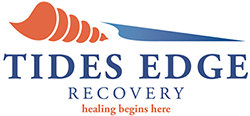A recent study explored the prevalence of early-onset dementia (before the age of 65). Of the 57,000 cases they reviewed, they could attribute 57% to heavy drinking. If you’ve noticed memory and cognition struggles lately, you need to know about alcoholic dementia. Don’t try to quit alcohol abuse alone. Reach out to an alcohol detox center that can guide you through withdrawal and put you on the best foot for recovery.
Need to know more about an alcohol detox program? Call us at 866.723.3127.
What Causes Alcoholic Dementia?
Alcohol, like many drugs, has a direct impact on the brain. If it didn’t, you wouldn’t experience an altered mental state when using it. But the effects on the brain extend beyond the time you spend drinking and into sober times.
Even if you’re a “high-functioning person”, the longer and more heavily you drink, the more those effects creep into your everyday life.
That means that even when you haven’t had a drink for several hours, you might experience frustrating residual effects like:
- Trouble with decision-making
- Lack of sound judgment
- Difficulty empathizing
A lot of this has to do with alcohol itself, which re-wires your brain as you become more dependent. But additionally, prolonged alcohol abuse depletes your body of nutrition. The same is true even if you eat a nutritionally-balanced diet.
In particular, the loss of one nutrient, B1 (thiamine), leads to actual brain shrinking that can be seen on an MRI.
Unfortunately, if dementia isn’t treated early, the brain may not be fully restorable. That’s why it’s crucial that you not wait to explore alcoholic dementia treatment options. An alcohol rehab program helps you get sober and focused on recovery. Then, you can work with therapists and clinicians during evidence-based addiction therapy programs. These sessions teach you healthy coping skills and can begin reversing some of the damage caused by alcohol abuse.
What are the Signs of Alcoholic Dementia?
One of the shapes that alcoholic dementia takes is called Wernicke-Korsakoff syndrome. This condition occurs when you experience brain damage to the thalamus, hypothalamus, and memory center. Each is located in the center of the brain.
You will, therefore, have symptoms like:
- Trouble thinking straight
- Difficulty learning new things
- Emotional outbursts
- Memory loss and gaps
One of the most noticeable signs of a person with alcoholic dementia is the telling of “tall tales”. If you have this symptom, then you may create elaborate yet believable stories (lies) to explain things you can’t remember. You may even believe the words are true.
This is a protection mechanism. In other words, the parts of your brain that still function are working overtime to fill in the gaps.
The creative part of the brain is often one of the last to go. That explains the telling of stories. But as alcoholic dementia progresses, that part of the brain will succumb as well as you lose all touch with reality.
If you’re a heavy drinker and are experiencing these symptoms, don’t wait to get help.
How Is Dementia Caused by Alcohol Treated?
First, we need to explore a question that may not be easy to ask of yourself. If you’re suffering from mental health challenges related to your alcohol use and haven’t been able to quit, ask yourself, Am I an Alcoholic?
If you answered yes, you need to reach out to a medical detox center. The sooner you can stop repeating the damage, the sooner your brain will begin to heal.
Next, you may need to complete an alcohol rehab program. In these programs, you’ll explore why you use alcohol excessively and how it’s impacting your life. You can then develop skills to prevent a relapse into old behavior through evidence-based therapies like:
- Cognitive-behavioral therapy (CBT): Cognitive-behavioral therapy (CBT) focuses on helping individuals recognize and address the unhealthy thoughts, beliefs, emotions, and behaviors related to their substance use. CBT uses evidence-based techniques such as cognitive restructuring, problem solving, relaxation training, and relapse prevention to help individuals develop new coping strategies and lifestyle changes to prevent relapse.
- Motivational interviewing: Motivational interviewing (MI) helps people with substance use issues explore and resolve ambivalence about making changes in their lives. It focuses on the person’s own motivations for change and how to move forward from there.
- Trauma therapy: Trauma therapy focuses on exploring the underlying causes of addiction and how trauma, or past events, can be contributing factors. Trauma therapy helps individuals to process their experiences in a safe environment, identify any triggers that lead to addictive behaviors, and develop healthy coping mechanisms.
- Acceptance and commitment therapy (ACT): Acceptance and Commitment Therapy (ACT) focuses on helping individuals create mindful, open, and present moments in order to make meaningful changes in their lives. It helps clients recognize and accept their thoughts, feelings, physical sensations, and behaviors associated with addiction—while also teaching them how to build a life worth living. ACT also helps individuals create a sense of purpose, meaning, and values in their life that can provide an alternative to using drugs or alcohol.
After completing any treatment program, you must continue to follow up regularly with a primary care, therapist, or extended care program. If you’ve caught this condition early enough, your brain may begin to heal on its own after treatment for alcohol abuse. But you may also need nutrition therapy and cognitive rehabilitation to restore lost brain function.
Reach Out to Tides Edge Detox Today
Is your alcohol consumption stealing your mind? It’s time to reclaim it. Call Tides Edge Detox and get on the path to the life you deserve. Call 866.723.3127 to learn more.









